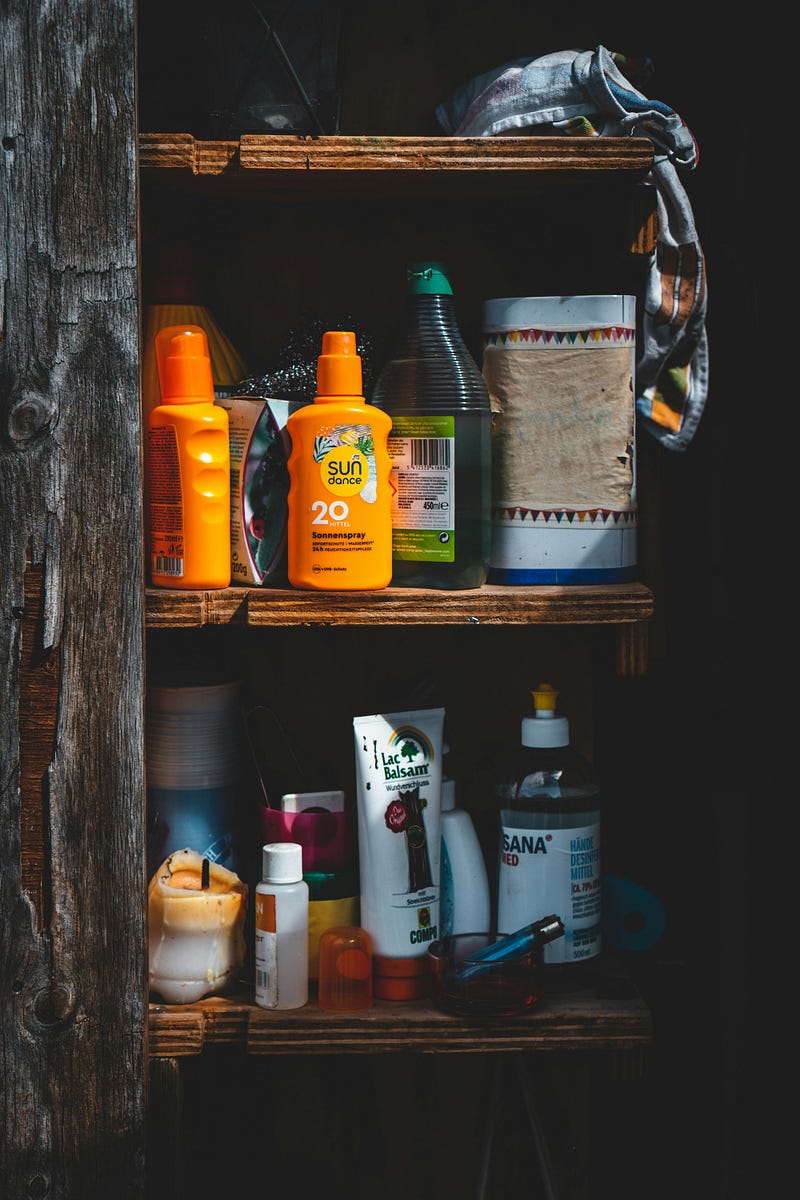Understanding Sunscreen: Debunking Common Myths for a Safer Summer
Written on
Chapter 1: The Current Landscape of Sunscreen Beliefs
There is a pervasive skepticism surrounding sunscreen, with only 55% of adults in Australia believing it is safe to use. Influential figures, such as Gwyneth Paltrow, have perpetuated this doubt, stating she only applies sunscreen in areas where the sun is most intense.
A concerning trend is seen among Gen Z, with a recent survey indicating that over half of this demographic is unaware of the dangers of sunburn. Additionally, a poll revealed that 14% of adults under 35 believe the myth that daily sunscreen application may be more harmful than direct sunlight exposure.
Given the importance of understanding sunscreen, it is alarming that four main myths persist in today's society: sunscreen causes skin cancer, blocks vitamin D production, contains harmful chemicals, and can be substituted with natural alternatives.

No, Sunscreen Doesn't Cause Skin Cancer
Proponents of the myth that sunscreen leads to skin cancer often cite an alarming 40% rise in melanoma cases in the U.S. between 2009 and 2019. They suggest that increased sunscreen use is to blame for this rise. However, this argument overlooks critical factors.
While some studies have indicated a correlation between sunscreen usage and a higher incidence of skin cancer, they failed to establish a causal relationship. The truth is that individuals who use sunscreen frequently are often those who spend more time in sunny environments. Unfortunately, they tend to apply insufficient amounts of sunscreen, leading to increased sun exposure and associated risks.
Dr. Jennifer Lin from Harvard Medical School clarifies, “It was the high amounts of sun exposure, not the sunscreen, that elevated their risk of skin cancer.” A recent meta-analysis has firmly concluded that sunscreen is effective in preventing melanoma.
A study conducted in Canada further illustrates this point, highlighting that residents of provinces with high melanoma rates reported using sun protection yet still experienced significant sun exposure due to outdoor lifestyles and warm climates.
To summarize, sunscreen does not cause skin cancer; rather, it serves as a preventative measure.
We Get Enough Vitamin D, Even With Sunscreen
Vitamin D is vital for our health, produced when our skin absorbs UVB radiation. Given that sunscreen blocks UVB rays, one might assume that wearing sunscreen could lead to vitamin D deficiency. However, this is a misconception.
The typical application of sunscreen does not sufficiently block vitamin D synthesis. Furthermore, just 10 to 15 minutes of sun exposure daily is enough to maintain adequate vitamin D levels. Dr. Lin emphasizes, “Concerns about vitamin D deficiency should not deter you from using sunscreen.”
It's also important to note that tanning beds are ineffective for boosting vitamin D levels, as they primarily emit UVA radiation, which does not facilitate vitamin D production.
In essence, using sunscreen does not put you at risk for vitamin D deficiency.
Natural Alternatives: Not a Substitute for Sunscreen
The trend toward natural alternatives, particularly homemade sunscreens, is on the rise. Yet, these options often fail to provide adequate protection against UVA and UVB radiation.
A 2000 study whimsically suggested that raspberry seed oil could offer an SPF ranging from 28 to 50 for UVB protection and about 7 for UVA. However, these claims were based on unverified data and lacked rigorous testing. A 2010 study revealed that oils generally provide an SPF between 2 and 8, far below the protection needed.
Therefore, conventional sunscreens remain the most reliable means of safeguarding against sunburn.

The Truth About “Toxic Substances” in Sunscreen
Ingredients like octocrylene often face scrutiny for being toxic. However, dermatologist Marie Hayag states, “Octocrylene doesn’t pose any substantial side effects.” Similarly, oxybenzone has been accused of being potentially carcinogenic, but scientific evidence supporting this claim is limited. It would take 277 years of continuous sunscreen use to reach a systemic dose associated with increased cancer risk.
Even if one avoids sunscreens containing oxybenzone, they would still encounter it in everyday products such as plastics and cosmetics. The scientific community generally agrees that sunscreens are safe for use, with the only notable concern being the skin permeability of infants.
In conclusion, the protective benefits of sunscreen far outweigh any minor risks associated with its ingredients.
Conclusion: Embrace Sunscreen for Safe Sun Exposure
After debunking these four myths, it is clear that using sunscreen is crucial. Remember: sunscreen prevents skin cancer, does not cause vitamin D deficiency, cannot be effectively replaced by natural alternatives, and is safe to use despite concerns about certain components. Personally, I prefer sunscreens that do not leave a strong residue, allowing me to stay protected without inconvenience.
Be smart—apply sunscreen and enjoy the remaining sunny days!

Debunking the worst sunscreen misinformation on TikTok.
A thorough examination of common sunscreen myths, including homemade alternatives and misconceptions about vitamin D.